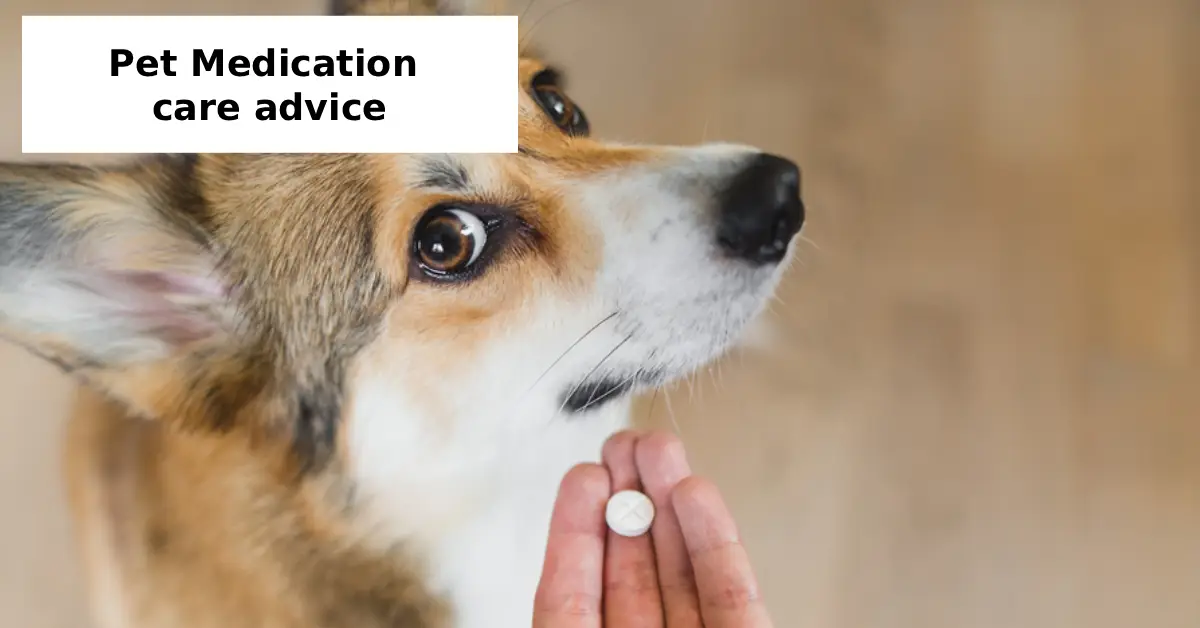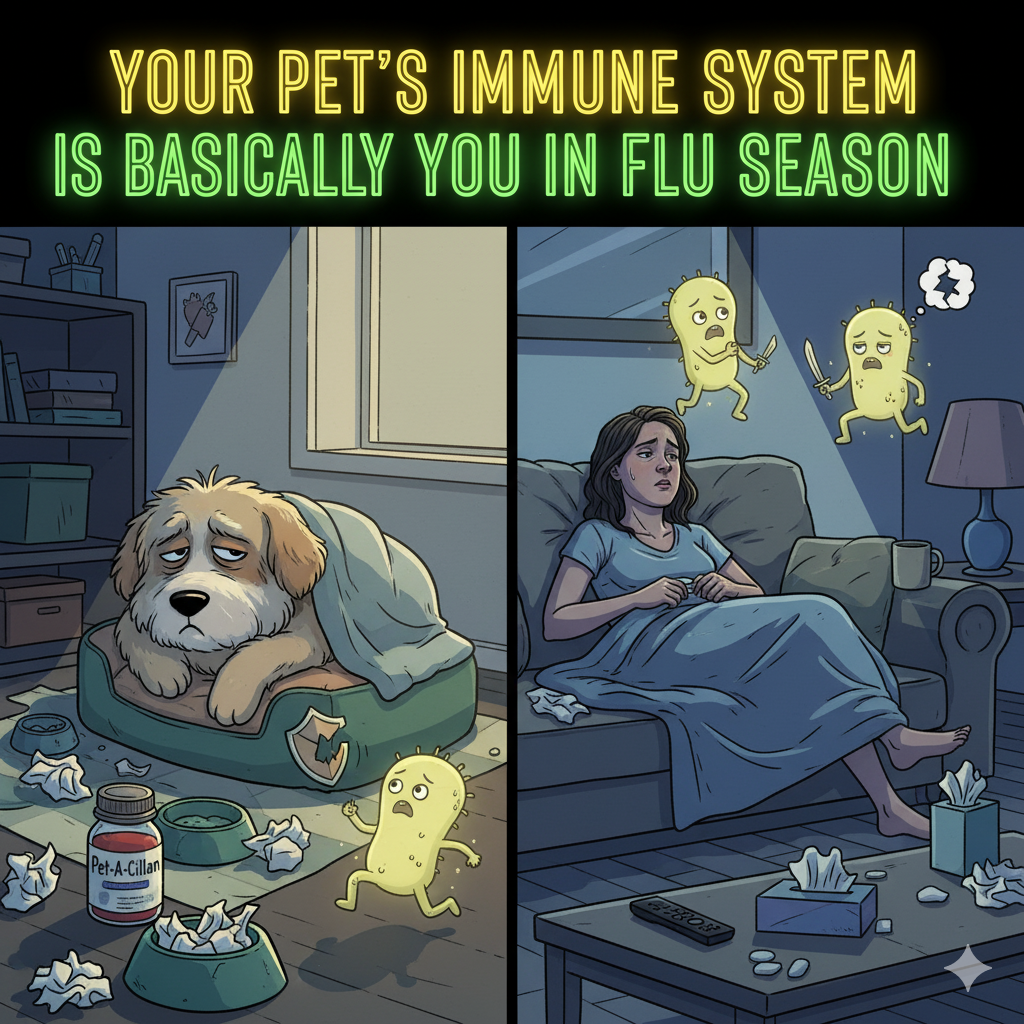When it comes to ensuring the well-being of our furry companions, pet medication care advice is essential. From routine vaccinations to specific treatments like pet antibiotics for infections or flea and tick medicine for pets, understanding what your pet may need—and when—is vital for every pet owner.
Whether you’re a first-time pet parent or a pet care blogger aiming to guide others, having knowledge of common dog medications, cat prescriptions, and other pet remedies will help you take proactive steps toward your pet’s health.
In this comprehensive guide, we’ll walk you through the most common types of pet medications, including their uses, side effects, and when they are prescribed. Let’s begin with the basics every responsible pet owner should know.
Understanding the Importance of Pet Medications
Pet medication care advice isn’t just about reacting to illness—it’s about preventing problems before they arise. Medications help manage everything from chronic conditions and acute infections to external parasites and seasonal allergies. For veterinary clinic clients or pet rescuers and foster homes, staying informed about medicine protocols is a key part of daily pet care.
Proper use of medications can:
- Prevent common illnesses in pets
- Improve recovery from injuries or surgeries
- Control parasites that cause discomfort or disease
- Manage chronic conditions like arthritis or epilepsy
Now, let’s break down these medications by category.
1. Antibiotics for Pets: Fighting Infections
Pet antibiotics for infections are among the most commonly prescribed medications by vets. They help fight off bacteria-related conditions, such as skin infections, UTIs, and respiratory problems. Antibiotics like Amoxicillin and Clindamycin are commonly used in dogs, cats, and small pets alike.
Use Note: Always follow dosage and schedule strictly to avoid antibiotic resistance.
Used By: Pet rescuers, first-time pet parents, and urban millennials often rely on vet-prescribed antibiotics for rescued or newly adopted pets.
2. Flea and Tick Medicine for Pets
No one likes seeing their pet scratch endlessly. Flea and tick medicine for pets provides long-term protection against parasites that not only irritate the skin but can transmit diseases. Options include spot-on treatments, collars, oral pills, and sprays.
Popular brands include Frontline, NexGard, and Seresto. These are safe for both dogs and cats, though dosage varies based on species and weight.
Tip: Always read labels before applying. Some dog products are toxic to cats.
3. Heartworm Prevention for Dogs
Heartworms are potentially deadly but entirely preventable. Heartworm prevention for dogs includes monthly oral medications like Heartgard or topical treatments.
Dogs in both urban and rural settings are at risk. Preventative care is cheaper and safer than treatment for active infections, which is often long and costly.
4. Pain Relief for Pets
Whether recovering from surgery or suffering from joint issues, pain relief for pets plays a crucial role. NSAIDs (Non-Steroidal Anti-Inflammatory Drugs) like Carprofen are typically used for dogs, while cats may require different meds due to liver sensitivity.
⚠️ Note: Never give human medications to pets without vet approval—many are toxic.
[Learn more about joint supplements for dogs to support long-term joint health.]
5. Pet Allergy Medications
Pets can suffer from seasonal allergies, food intolerances, and skin irritants just like humans. Pet allergy medication options include antihistamines (like Benadryl under vet guidance), corticosteroids, and newer biologics like Apoquel for dogs.
For rural pet owners, natural remedies like oatmeal baths can offer temporary relief when access to vets is limited.
6. Deworming Treatments
Pet deworming treatment is essential for both puppies and kittens, often starting at 2–3 weeks old. Dewormers help eliminate roundworms, hookworms, tapeworms, and more.
Common dewormers include Pyrantel and Fenbendazole. For adult pets, regular deworming (every 3–6 months) is recommended based on lifestyle.
Pet owners who frequently visit dog parks or adopt rescues should deworm more often.
7. Over-the-Counter (OTC) Medications
The best over-the-counter pet meds include mild flea preventatives, medicated shampoos, wound sprays, and some digestive aids.
While OTC options are handy for DIY pet care, always consult your vet before starting anything new. Some OTC meds can interact negatively with existing prescriptions.
8. Prescription Medications for Cats
Prescription meds for cats are specially formulated to account for feline sensitivities. These can include thyroid medications, pain relievers, and anti-anxiety drugs.
Cats process drugs differently than dogs. Even a dose safe for dogs can be harmful for felines. That’s why pet medication care advice is essential for cat parents.
9. Vitamins and Supplements
Supplements like Omega-3s, probiotics, and multivitamins help boost your pet’s health. Especially for senior pets or those with specific conditions, supplements support digestion, joint health, and coat condition.
Urban Gen Z pet parents often search for natural alternatives and supplement-based care before visiting a vet.
10. Understanding Pet Medication Side Effects
While medications are vital, being aware of pet medication side effects is equally important. These may include:
- Vomiting or diarrhea
- Lethargy or agitation
- Appetite changes
- Skin irritation
Always report unusual symptoms to your vet. This applies especially to first-time pet parents who may not recognize subtle changes.
Tips for Safe Pet Medication Use
Label Everything: Store meds in clearly marked containers away from children or other pets.
Use a Calendar: Keep track of dosing schedules to avoid missed or double doses.
Consult First: Avoid using leftover human or pet meds unless explicitly approved by a vet.
Keep Records: Document medication names, dosages, and side effects. Useful during emergencies or vet changes.
Why Pet Medication Care Advice Matters
By following expert-led pet medication care advice, you can confidently manage your pet’s health—whether you’re a veterinary clinic client receiving prescriptions or a pet care influencer educating others through content.
In the digital age, rural/remote pet owners rely heavily on accurate online guides, and that makes responsible, trustworthy advice even more crucial.
Expert-Led Care Builds Trust
We recommend always sourcing medications from licensed veterinarians or reputable pet pharmacies. Do not trust random online sources or social media hacks.
Your pet’s health deserves the same care and research you’d invest in for yourself. And when in doubt, get that vet consult!
Final Thoughts:
From pain relief for pets to heartworm prevention, knowing your options empowers you to act early and wisely. While it’s easy to feel overwhelmed, just remember: quality pet medication care advice makes a world of difference.
Whether you’re a pet blogger, a first-time pet parent, or a seasoned pet rescuer, staying informed is your first step toward long-term pet wellness.
Frequently Asked Questions (FAQs)
Q1. Can I use human painkillers for my dog or cat?
A: No, never use human medication without a vet’s approval—many are toxic to pets.
Q2. How often should I give deworming medication to my pet?
A: Puppies/kittens: every 2–3 weeks until 12 weeks old; Adults: every 3–6 months depending on exposure.
Q3. What’s the safest flea and tick medicine?
A: Products like NexGard and Seresto are widely recommended but always follow your vet’s advice based on your pet’s needs.
Q4. Are supplements necessary for pets?
A: Not always, but supplements can improve joint health, digestion, and skin conditions, especially in older pets.






1 thought on “What Are the Common Types of Pet Medications?”